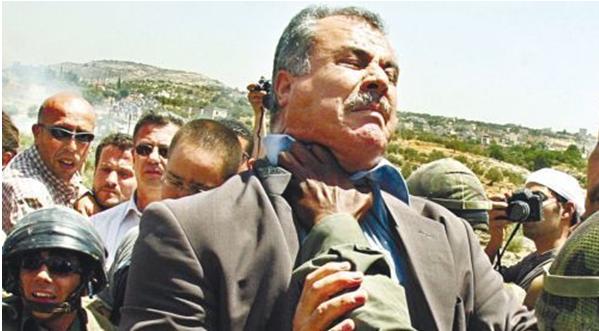The Tel Aviv District Court on Sunday, May 10, threw out the conviction of Hadash chairman and former MK Muhammad Barakeh by a lower Tel Aviv Magistrate’s Court for allegedly attacking a right-wing demonstrator during a protest around 10 years ago. Barakeh was originally convicted in March 2014, but on an appeal by Adalah – the Legal Center for Arab Minority Rights in Israel – a three-member judicial panel composed of Judges Devorah Berliner, George Karah, and Miriam Sokolov in December 2014 found that the lower court had failed to explain why Barakeh’s acts were not covered by his parliamentary immunity.
Subsequently, the magistrate’s court explained its reasoning and reiterated its conviction of Barakeh, leading to a second and final appeal by Adalah.
Adalah had argued from the start that there was legal precedent for parliamentary immunity for MKs like Barakeh for minor scuffles in the context of protests. The former lawmaker had already been acquitted of the more serious charge of striking a soldier from an undercover unit during another demonstration against the West Bank apartheid wall in Bil’in, west of Ramallah, nine years ago. After the lower court convicted him, Barakeh said the verdict “proved what we said at first: that this was a political trial against the activities and positions of a member of the Knesset,” and vowed to appeal.
Hassan Jabareen, Barakeh’s lawyer and director of Adalah, said this is “the first time that the prosecutor filed an indictment against an MK for behavior at a demonstration.” Jabareen said that many right-wing MKs participated in demonstrations and behaved questionably, for example like those who acted participated in protests during the withdrawal from the Gaza Strip in 2005, but none of them were issued with an indictment. “The [Magistrate’s] Court overturned three of the charges [against Barakeh] but left the most minor one standing,” Jabareen had argued in defense of his client before the District Court, saying that behind all the charges brought against Barakeh looms a policy of discrimination and lack of “respect for equality before the rule of law.”



